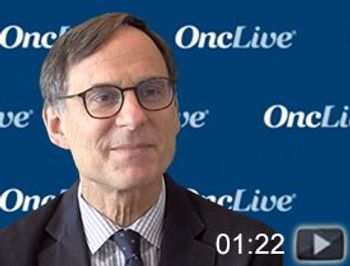
Steven Coutre, MD, professor of medicine at Stanford University Medical Center, discusses challenges with chimeric antigen receptor (CAR) T-cell therapy in acute lymphoblastic leukemia.

Steven Coutre, MD, professor of medicine at Stanford University Medical Center, discusses challenges with chimeric antigen receptor (CAR) T-cell therapy in acute lymphoblastic leukemia.
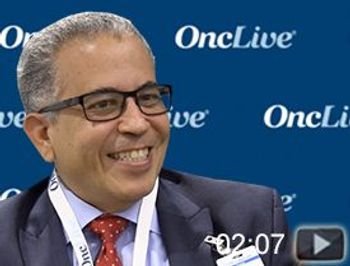
Carlos R. Bachier, MD, program director of Sarah Cannon Center for Blood Cancer, Sarah Cannon Research Institute, discusses the relationship between chimeric antigen receptor (CAR) T-cell therapy and stem cell transplant.
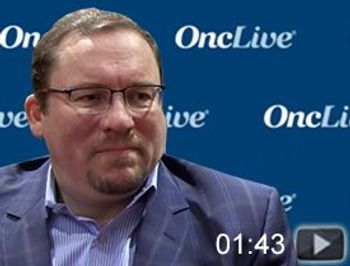
Renier Brentjens, MD, PhD, associate professor, chief, Cellular Therapeutics Center, Memorial Sloan Kettering Cancer Center, discusses the goal of armored chimeric antigen receptor (CAR) T cells.
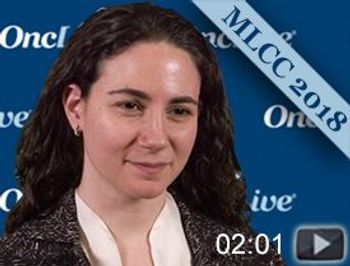
Sarah B. Goldberg, MD, MPH, an assistant professor of medicine at the Yale School of Medicine and Yale Cancer Center, discusses testing for and treating resistance to EGFR tyrosine kinase inhibitor (TKI) therapy in non–small cell lung cancer.
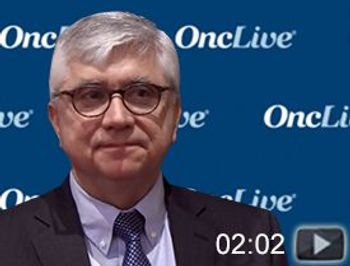
Stephen J. Schuster, MD, professor of hematology/oncology at the University of Pennsylvania Abramson Cancer Center, discusses CAR T-cell therapy in diffuse large B-cell lymphoma.
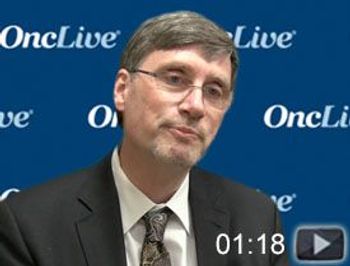
Holger L. Gieschen, MD, assistant professor, Department of Radiology, the University of Tennessee Health Science Center, radiation oncologist, West Cancer Center, discusses the safety profile of radiation therapy in patients with non–small cell lung cancers (NSCLC).

This week, the top managed care stories included the Trump administration proposed extending the duration of short-term health plans; a report found that CAR T-cell therapies are worth their high price tags; the new issue of Evidence-Based Oncology® examined current issues in immunotherapy.
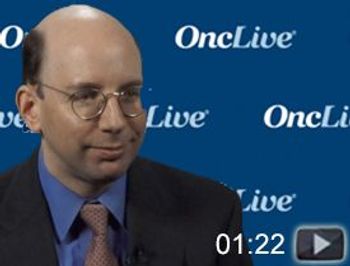
Alexander E. Perl, MD, associate professor of medicine, University of Pennsylvania, discusses upcoming chimeric antigen receptor (CAR) T-cell therapies for patients with acute lymphoblastic leukemia (ALL).
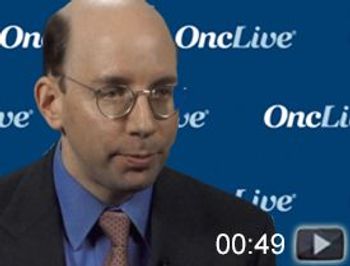
Alexander E. Perl, MD, associate professor of medicine, University of Pennsylvania, discusses the impact of chimeric antigen receptor (CAR) T-cell therapy on the treatment of patients with acute lymphoblastic leukemia (ALL).
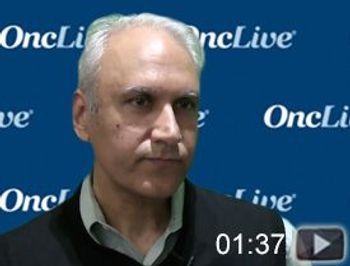
Nina Shah, MD, associate professor, Department of Medicine, University of California, San Francisco (UCSF) Helen Diller Comprehensive Cancer Center, discusses the potential of chimeric antigen receptor T-cell therapy in myeloma.
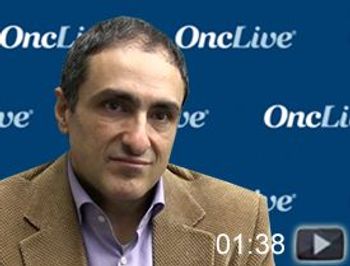
Charalambos (Babis) Andreadis, MD, MSCE, associate professor of clinical medicine, Department of Medicine, UCSF Helen Diller Family Comprehensive Cancer Center, discusses toxicities associated with CAR T-cell therapy.
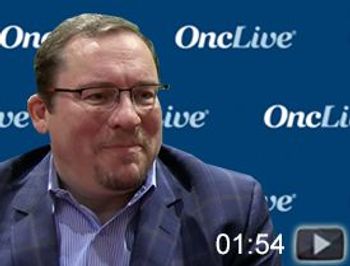
Renier Brentjens, MD, PhD, associate professor, chief, Cellular Therapeutics Center, Memorial Sloan Kettering Cancer Center, discusses the toxicities associated with chimeric antigen receptor (CAR) T-cell therapy.
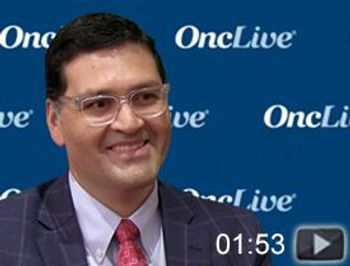
Jesus Berdeja, MD, director of Multiple Myeloma Research, Sarah Cannon Research Institute, discusses response to the chimeric antigen receptor (CAR) T-cell therapy bb2121 in patients with multiple myeloma.

This week, the top managed care news included President Donald Trump vowing to lower drug prices during his State of the Union address; 3 corporate giants joined forces on healthcare; and CAR T-cell therapy was named the cancer advance of the year.
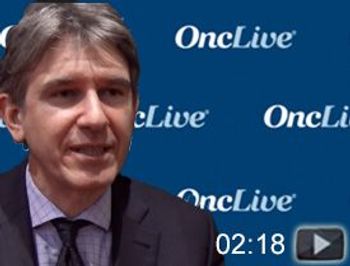
Miguel-Angel Perales, MD, Deputy Chief, Adult Bone Marrow Transplant Service, director, Adult Bone Marrow Transplantation Fellowship Program, Memorial Sloan Kettering Cancer Center, discusses determining which chimeric antigen receptor (CAR) T-cell therapy to use for patients with hematologic malignancies.
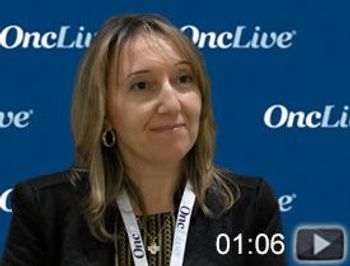
Erminia Massarelli, MD, PhD, MS, associate clinical professor, Department of Medical Oncology and Therapeutics Research, City of Hope, discusses the adoption of alectinib (Alecensa) as the first-line therapy in the treatment of patients with ALK-positive non–small cell lung cancer (NSCLC).
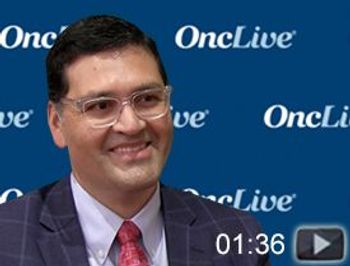
Jesus Berdeja, MD, director of Multiple Myeloma Research, Sarah Cannon Research Institute, discusses next steps with the CAR T-cell therapy bb2121 in multiple myeloma.
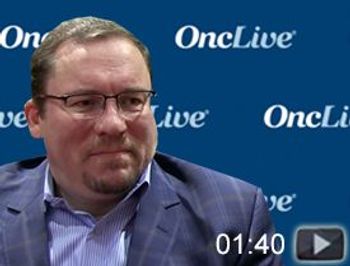
Renier Brentjens, MD, PhD, associate professor, chief, Cellular Therapeutics Center, Memorial Sloan Kettering Cancer Center, discusses the potential for chimeric antigen receptor therapy (CAR) T-cell therapy in solid tumors.
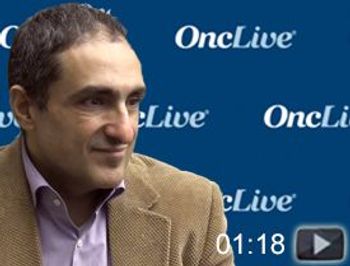
Charalambos (Babis) Andreadis, MD, MSCE, associate professor of clinical medicine, Department of Medicine, UCSF Helen Diller Family Comprehensive Cancer Center, discusses developments being made to chimeric antigen receptor (CAR) T-cell therapy for patients with hematologic malignancies.
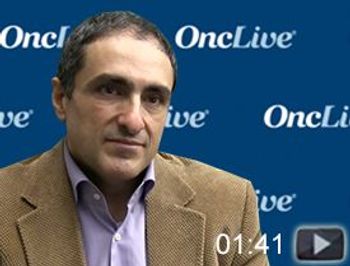
Charalambos (Babis) Andreadis, MD, MSCE, associate professor of clinical medicine, Department of Medicine, UCSF Helen Diller Family Comprehensive Cancer Center, discusses chimeric antigen receptor (CAR) T-cell therapy in lymphoma.
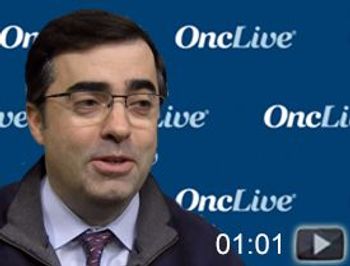
David F. McDermott, MD, director of the Biologic Therapy Program at Beth Israel Deaconess Medical Center, discusses novel immunotherapy combinations for patients with metastatic renal cell carcinoma (RCC).
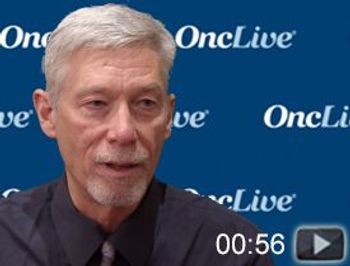
David Maloney, MD, PhD, professor of medicine, Division of Oncology, University of Washington, Clinical Research Division, Fred Hutchinson Cancer Research Center, discusses the success and challenges of chimeric antigen recptor (CAR) T-cell therapy in hematologic malignancies.
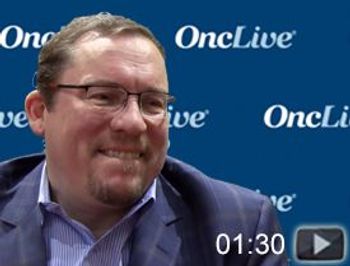
Renier Brentjens, MD, PhD, associate professor, chief, Cellular Therapeutics Center, Memorial Sloan Kettering Cancer Center, discusses challenges facing chimeric antigen receptor (CAR) T-cell therapy for patients with hematologic malignancies.
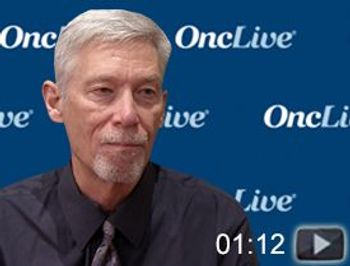
David Maloney, MD, PhD, professor of medicine, Division of Oncology, University of Washington, Clinical Research Division, Fred Hutchinson Cancer Research Center, discusses responses to the chimeric antigen receptor (CAR) T-cell product JCAR017.
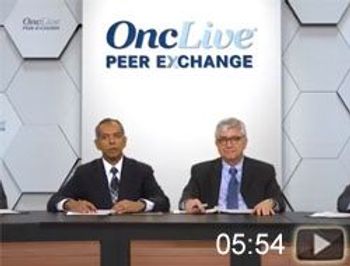
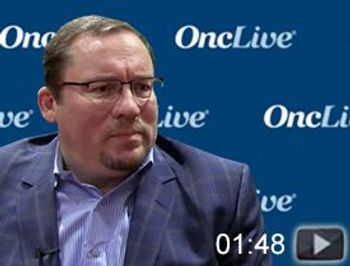
Renier Brentjens, MD, PhD, associate professor, chief, Cellular Therapeutics Center, Memorial Sloan Kettering Cancer Center, discusses targets for CAR T-cell therapy.
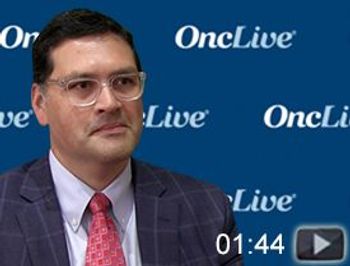
Jesus Berdeja, MD, director of Multiple Myeloma Research, Sarah Cannon Research Institute, discusses a study of bb2121, an anti-BCMA chimeric antigen receptor (CAR) T-cell therapy.
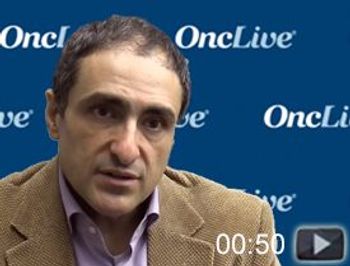
Charalambos (Babis) Andreadis, MD, MSCE, associate professor of clinical medicine, Department of Medicine, UCSF Helen Diller Family Comprehensive Cancer Center, discusses the role of chimeric antigen receptor (CAR) T-cell therapy for pediatric patients with acute lymphocytic leukemia (ALL).
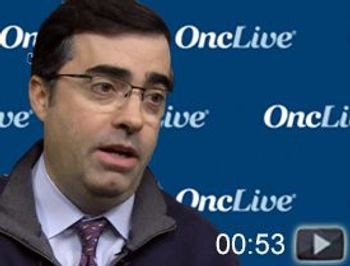
David F. McDermott, MD, director of the Biologic Therapy Program at Beth Israel Deaconess Medical Center, discusses immunotherapy as a standard of care for patients with renal cell carcinoma (RCC).
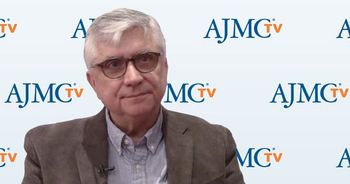
Deciding to administer CAR T-cell therapies is an institutional commitment that requires educating all clinicians who will be involved and partnerships with other organizations, said Stephen Schuster, MD, of the Perelman School of Medicine.